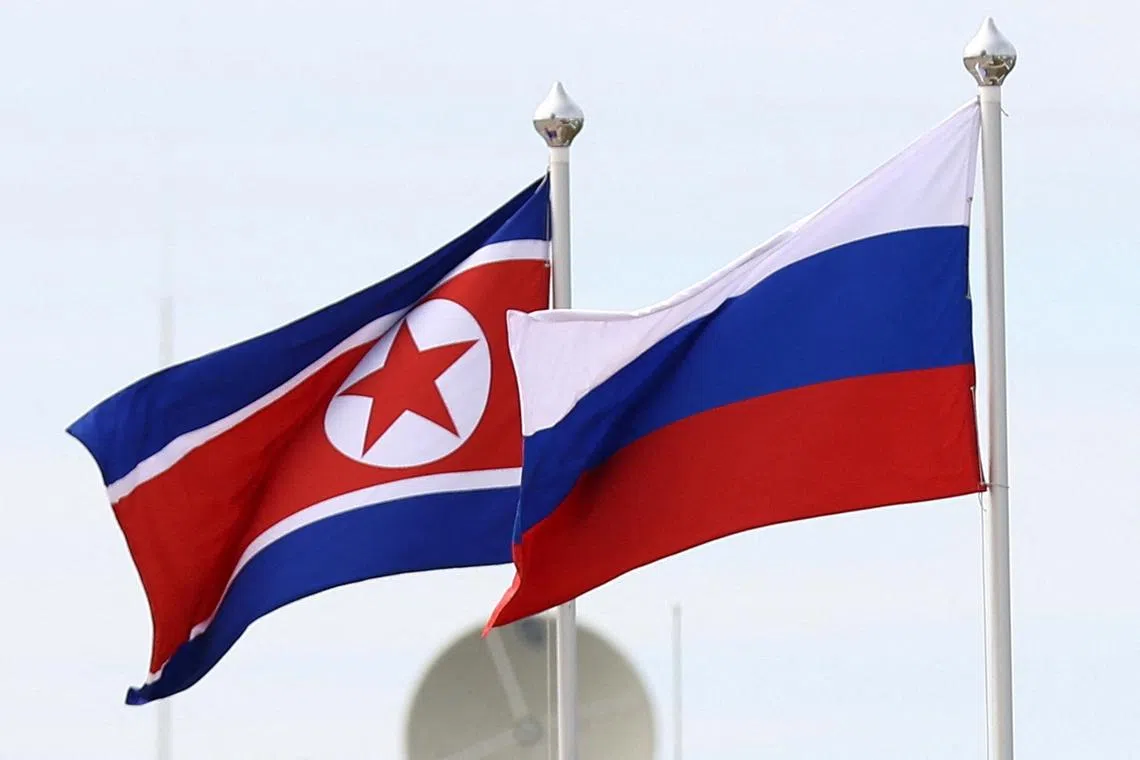British intelligence estimates over 6,000 North Korean casualties in Russia’s Kursk region
Sign up now: Get ST's newsletters delivered to your inbox

11,000 North Korean troops were initially deployed to Russia's Kursk region.
PHOTO: REUTERS
Follow topic:
LONDON - More than 6,000 North Korean soldiers are believed to have been injured or killed while fighting in Russia’s Kursk region in support of Moscow’s war on Ukraine, according to estimates by British intelligence.
This underscores North Korean leader Kim Jong Un’s role as a key ally of President Vladimir Putin in a war now in its fourth year
The number amounts to more than half of the 11,000 North Korean troops initially deployed to the Kursk region, the British Defence Ministry posted on X.
“Significant DPRK casualty rates have almost certainly been sustained primarily through large, highly attritional dismounted assaults,” the statement said. DPRK stands for the Democratic People’s Republic of Korea.
Neither Russia nor Ukraine provides official figures for the number of combat casualties. North Korea acknowledged for the first time in April that it deployed troops to support Russia but did not confirm the number sent or the level of casualties.
The estimate comes as Mr Putin and Mr Kim are set to mark this week the first anniversary of their mutual defence treaty that revived a deal dating back to the Cold War. Mr Kim has since become a crucial source of missiles, munitions and even foot soldiers for Russia’s war.
In a meeting with a top security aide to Mr Putin, Mr Sergei Shoigu, in Pyongyang earlier in June

